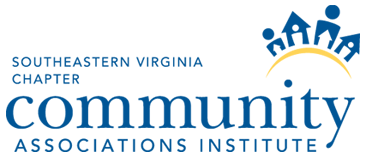
There are many different social media platforms that may be utilized by community associations; Facebook, Twitter and Instagram to name a few. Before jumping in, take some time to consult legal counsel, and develop a strategy. Know the good, the bad and yes, even the ugly!
Social media can be a very effective and powerful tool used to communicate with association residents/ owners, when used with predetermined guidelines.
There are a multitude of items these platforms may be used for, such as posting community events, contract changes, community photos, club or committee meeting dates, and even maintenance updates. It is also a
way to connect members of the association that share similar or like interests. Using social media platforms to communicate also has the potential to lower the community costs for routine mailings such as reminders and updates, provided it is permitted in the governing documents for the community. Social media can help owners/residents feel like they are an active participant in the community, and that their opinion is heard and matters.
While social media platforms can be positive for associations, they can also be a negative. What may be viewed as petty attacks between residents or members of the Board can become a real issue.Beware, everything done or said on social media is permanent, even if it’s deleted. Posts have the potential to create harmful or hurtful situations between owners, residents, and Board members, resulting in angerand misinformation. It can be difficult for a negative post to result in a positive, and has the potential to push an owner to sell their beloved home, or cause a member of the Board of Directors to resign, with claims of defamation of character and/or harassment. Many residents share concerns that negativity may also have an adverse effect on home values when the page or posts are open to others outside of the community. These are exactly the types of issues to avoid when considering a social media platform in an association setting.
How can associations address owners who create pages that are anti-association or appear to be an association owned or sanctioned page? The association may wish to copyright its legal name. This may help to prevent others from using the association’s name online. However, if the Association finds that an Owner has arbitrarily set up their own page, that Owner may be asked in a positive manner to close the unofficial page and join in on the “official” association page. Should the Owner decline or refuse, it would then be a matter to consult legal counsel about, if the Board desires to further pursue. The end goal being the members of the community have a pleasant and positive experience with social media in their Association, right?
As discussed, social media can be a great added tool in communicating in an association; however, many association attorneys throughout the country suggest
putting a communication/social media policy into place.
In considering such a policy, David Savitt, of KSN Law suggests five key things to keep in mind;
1. Pick a platform that makes sense for the community’s needs; a single platform may be sufficient
2. Determine who can view the association’s social media page; who has access, are they closed (private) or open to anyone
3. Determine who can use the association’s social media account(s); who will manage comments and approve or deny posts
4. Determine the permissible content; may include direct links to community forms
5. Determine the types of prohibited content; delineate restrictions for use
When considering invoking such a policy, seek the advice and guidance from the association’s qualified attorney to develop or review the policy prior to implementing.
The negative connotation of social media and associations raises some concerns. However, with proper parameters set in place from the beginning, and adequate follow through monitoring the information permitted to be posted, social media can be a substantial asset to the community as a whole.
By Tanya Gasser, CMCA®, AMS®, The Select Group, Inc., AAMC®
